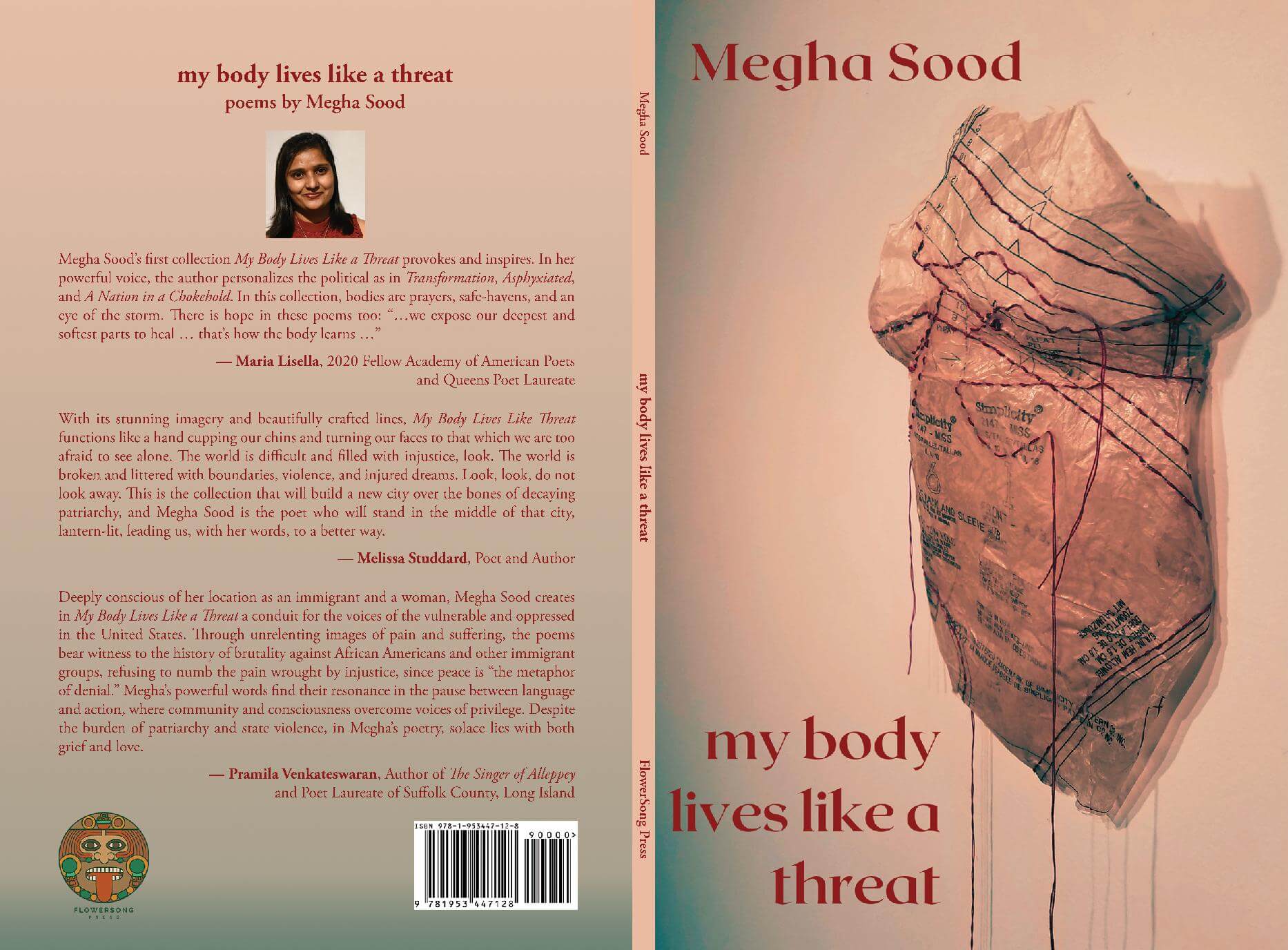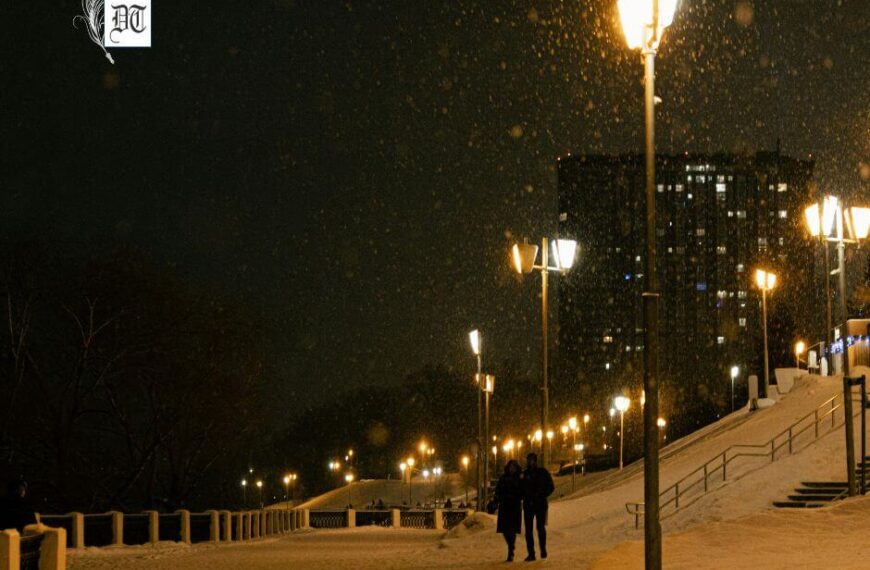Dr. Anita reviews Megha Sood’s debut poetry collection, My Body Lives Like a Threat. An exclusive for Different Truths.

The central theme of Megha Sood’s debut poetry collection, My Body Lives Like a Threat is a warning and a stark reminder that this world is in endless churning conflict and out of control. It’s quite like what Samuel P. Huntington forewarned in his book, Clash of Civilisations in response to Francis Fukyama’s End of History, after communism collapsed in Eastern Europe, in the 1990s.
Sood stresses directly and implicitly that humans are primarily narcist, unrepenting, and need to take immediate heed before the world somersaults into dystopia. She draws us towards this central theme through forty-seven poignant poems spread across five aptly titled sections: ‘Black Truth’, ‘War and Peace, ‘My Body is Not an Apology, ‘A Just Immigration Policy’ and ‘My Body Lives Like a Threat’.
Race, gender, immigration, nationality…elements that confront the world are remarkably addressed…
Each poem, in each section, portends disputes, discord, and contradictions that are ongoing, or just around the corner. Race, gender, immigration, nationality…elements that confront the world are remarkably addressed poem after poem, each one circling back to the main theme of the book. In most poems, Sood also questions the reader, thereby pulling them into a conversation and demanding responses.
I am reminded of, “Et tu, Brute?” from Shakespeare’s Julius Caesar. While the rhetorical questions in Sood’s poems do not address personal betrayal by a friend/someone close, yet these signify general betrayal in current times and are an impactful poetic strategy that leaves the reader pondering.
… the poems while concentrating on specific subthemes, reaffirm the pain, the loss, the fear, the restlessness of individuals…
In all the sections, the poems while concentrating on specific subthemes, reaffirm the pain, the loss, the fear, the restlessness of individuals in varied circumstances wherein they feel pressured, or threatened, or abused. To remain true to the leitmotif of the book, Sood ensures that she covers not only domestic issues of race, immigration, and gender but also global issues such as tensions and situations of grief and shock in Iran, Bosnia, Sudan, Iraq, Rwanda, and Syria.
Megha Sood’s debut collection is a carefully crafted book with a specific pivotal theme charging urgently through the poems like a river in a hurry or a storm aching to leash havoc. These are not poems that would pat you on the back or soothe your shriveled nerves. These are intentionally intended to shake and shock you out of your stupor. And as such these are critical and essential poems. My favorite poem from the book is ‘Mouth’reproduced below:
Mouth
Our mouth is an entry point. It speaks of hunger, speaks of lust. The urgency of something more sacred than the hymns under muted breath. It speaks of the violence bodies endure. A gaping wound for our broken soul. An unspoken lexicon of silence but misheard and misunderstood. Desires birth within it. Anything that catches our attention needs to be validated by our mouths. the epicenter of gluttony: The protagonist of the original sin. The desirous taste should sit well before we can call it our own. We call a lot of things our own. We desire. We possess. The most untamed of all senses. A shiny trinket catches our attention and the slurping desire starts building. We are creatures of the mouth. We are creatures of wanting.
To me, the ‘Mouth’ is a metaphor for everything topsy turvy in this world…
To me, the ‘Mouth’ is a metaphor for everything topsy turvy in this world as it underscores the self-absorption and egotism of humans which Sood begins with and continues to reinforce throughout the book. How do we control our mouth/body from saying nasty or doing evil things? How do we arrive at some point of change? How do we ensure that injustices committed are not repeated?
At some level, Sood’s questions, while seemingly simple, don’t have easy, straightforward answers. After all, when a body lives in constant threat, how do we alleviate its excruciating anguish? Therefore, African Americans, immigrants, women, refugees, people caught in civil conflict are living in continuous peril as Sood alludes to in her poems, leaving us saddened and on the edge and ready for action.
Megha Sood’s poems and the jacket image match the intensity of the theme of the book.
A word here about the jacket of the book adds to the existential questioning. There is an image of just a torso with scribbles and words that could be misunderstood or be distinct…depending upon the perception of the reader. Megha Sood’s poems and the jacket image match the intensity of the theme of the book.
Overall, I strongly recommend poetry connoisseurs to take the real and allegorical journey with Megha Sood through her formidable poems in, My Body Lives Like a Threat. You will not be disappointed.
Cover sourced by the reviewer





 By
By

 By
By
 By
By
Thanks so much Dr Anita Nahal for your brilliant review of my debut full length poetry collection.
This is such an honor.